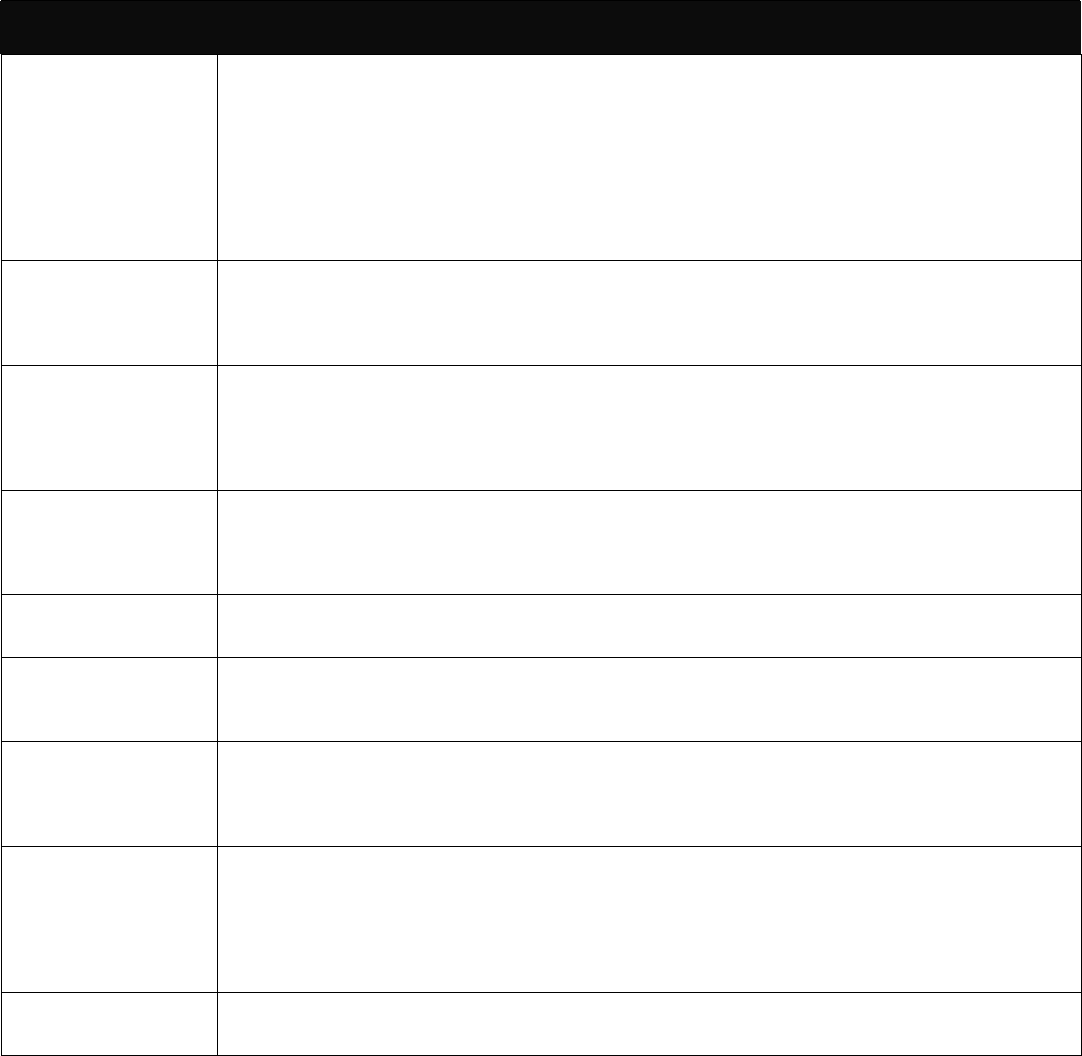
59
CHF PHARMACOLOGICAL TREATMENT OPTIONS - RECOMMENDATIONS
ACE Inhibitors
(Angiotension
Coverting Enzyme)
Need to change font to
match others
ACE Inhibitors should be prescribed for patients with left-ventricular systolic
dysfunction with EV < 40 unless contraindicated or not tolerated.
ACE Inhibitors should be continued indefinitely.
The recommended dose of ACE Inhibitors for heart failure are the larger doses used in the clinical trials
demonstrating improvement in survival.
Contradictions to ACE Inhibitors include shock, angioneurotic edema, significant hyperkalemia (scrum
potassium >5.5mEq/1)**, symptomatic hypotension, severe renal artery stenosis, severe aortic stenosis and
pregnancy
Alternative Treatment to
ACE Inhibitors
Consider Angiotension Receptor Blockers (ARB) as alternative therapy only in ACE inhibitor – intolerant
patients due to persistent cough shock or angineurotic edema(or add to ACE if beta-blocker contraindicated)
Consider hydralazine/isosorbide dinitrate combination therapy if renal insufficiency precludes ACE/ARB
therapy.
Beta - Blockers
Data supports long acting metoprolol, carvedilol, or bisoporlol indicated for clinically stable patients with left
ventricular systolic dysfunction and mild to moderate heart failure symptoms that are on standard therapy
(which typically includes ACE Inhibitors, diuretics as needed to control fluid retention and digoxin).
Start with low doses and gradually increase.
If tolerated, beta-blockers are also indicated in the treatment of high-risk patients after an acute myocardial
infarction.
Diuretics
Consider diuretic drugs for patients with fluid overload and edema.
Patients with symptomatic heart failure should be treated with a diuretic drug, even when rendered free of
edema. Diuretic drugs should be used in conjunction with an ACE inhibitor. The dose and type of diuretic
drug may change according to fluid status, but generally will be needed indefinitely.
Digoxin
Consider digoxin in patients with symptomatic evidence of heart failure, elevated filling pressures, a third heart
sound, ventricular dilatation or depressed ejection fraction.
Useful drug in heart failure patients with atrial fibrillation with rapid ventricular rates.
Anti-Coagulants
(Warfarin)
Patients with heart failure and atrial fibrillation should be treated with Warfarin, unless contraindicated in
present systematic embolization.
Anticoagulation with Warfarin should be considered in patients with severely impaired systolic function and
high risk thromboemboli.
Aldosterone
Antagonist
Spironolactone
Considered administration of spironolactone at low dose (12.5mg to 25mg daily) for patients receiving standard
therapy who have severe heart failure caused by left ventricular dysfunction.
Patients should have a normal serum potassium level and adequate renal function.
**Monitor serum K + levels at regular intervals and after any change in dosage.
Antiarrhythmics
Not routinely recommended, but indicated in atrial fibrillation.
Due to its low incidence of proarrhythmic effects in general, amiodarone is the preferred drug when
antiarrhythmic therapy is indicated in patients with heart failure for supraventricular tachycardia not controlled
by Digoxin or beta-blocker or patients with life threatening ventricular arrhythmia that are not candidates for
implantable cardiac defibrillators.
Use of antiarrhythmic agents should not be used for the suppression of ventricular premature beats or non-
sustained ventricular tachycardia, which is either asymptomatic or perceived as palpations.
Other
Use of most calcium channel blockers is not recommended unless needed for hypertension or rapid response of atrial
fibrillation.
**Monitor Serum K+ levels on a regular basis; Consider low potassium duet and avoid foods high in potassium
Complied From:
1. Guidelines for the Evaluation and Management of Heart Failure. Report of the American College of Cardiology/American Heart Association Task Force on
Practice Guidelines (Committee on Evaluation and Management of Heart Failure). Circulation 1995; 92: 2764-84, reviewed 2005.
2. US Department of Health and Human Services. Agency for Health Care Policy and Research. Heart failure: evaluation and care of patients with left ventricular
systolic dysfunction. Rockville, The Agency 1994 (Clinical Practice Guideline No. 1) (AHCPR Publication No. 94-0612.)
3. Heart Failure Society Guidelines: A Model of Consensus and Excellence. Pharmacotherapy 20(5) 495-522, 2000
4. Institute for Clinical Systems Improvement, Inc. Health Care Guidelines; Congestive Heart Failure in Adults. November, 2000
**Utilization Management Committee will review Guidelines for new scientific evidence or national standard changes prior to
distribution to Providers annually.
